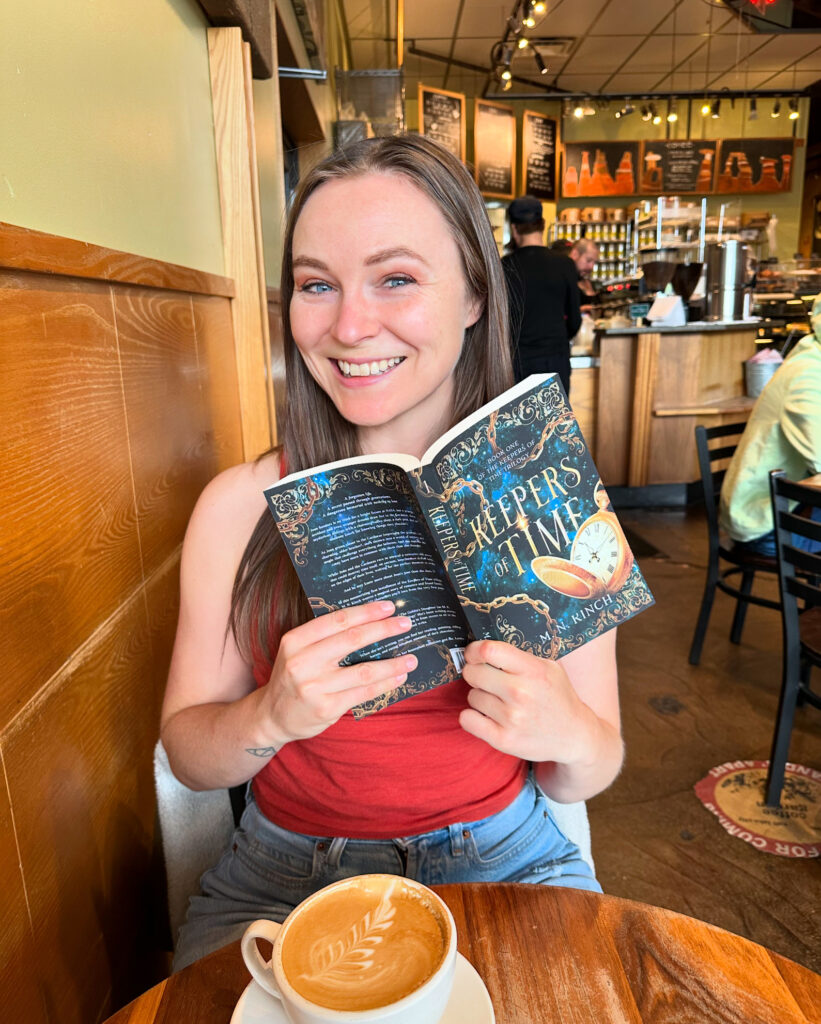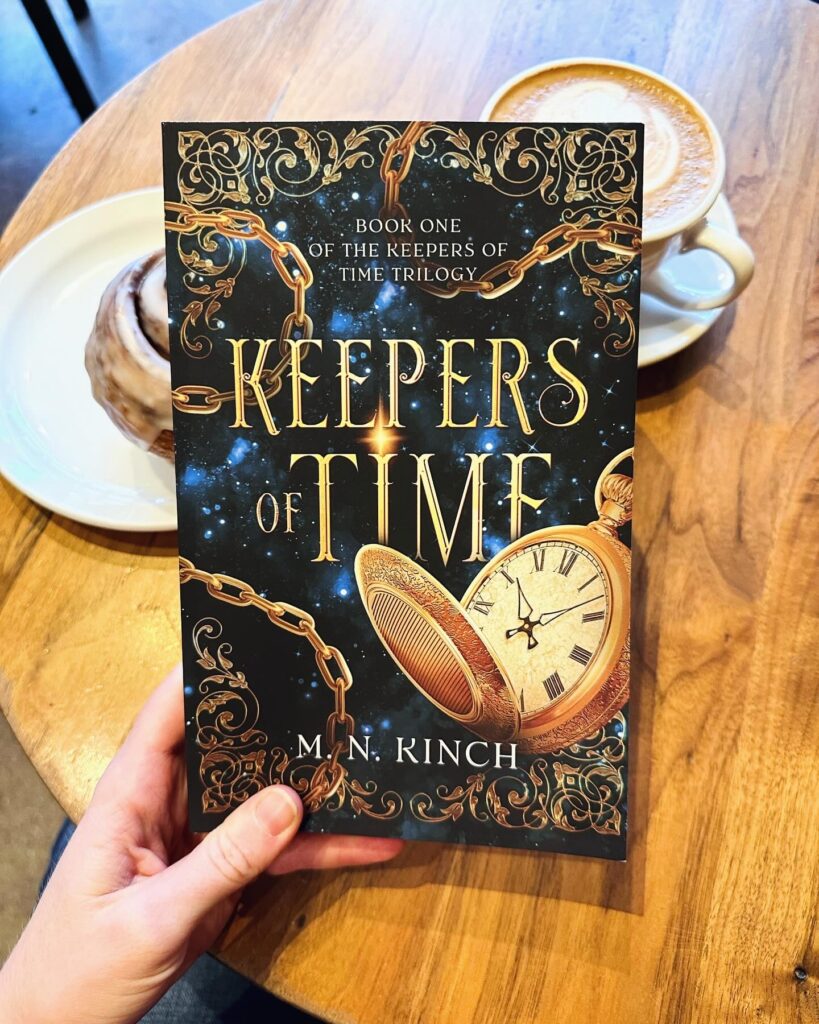
Writing novels has been one of the most rewarding things I’ve ever done…and one of the hardest. I’ve learned so much through this process, not only about the craft of writing and the business of publishing, but about life in general.
That’s one of the things I love most about the creative process. It’s a safe little arena in which to learn some of life’s most important lessons, and then at the end you have an awesome book/painting/song/knitted pom pom hat/whatever to show for it.
I’ve been wanting to reflect and write about what I’ve learned. I’m a writer, after all. This is how I work things out in my head, so I’m going to run through just a few of the valuable things I’ve learned, in no particular order.
Lessons I Learned While Writing Books
Perfectionism isn’t your friend. Just get something on paper.
Writing is at least one area of my life where I’ve (mostly) learned to let go of perfection, at least with novels and writing content for work. (I’m a full-time content/copywriter for a company I LOVE.)
Here’s a secret: every book you’ve ever loved started out as a giant pile of crap. They’re called shitty first drafts for a reason!
Be willing to suck when you’re first getting started. The thing is, you can’t edit a blank page. You can’t improve what doesn’t exist. Something is better than nothing in writing, health, relationships, finance, and pretty much any area of life you can think of.
In the immortal words of Jake the Dog from Adventure Time, “Sucking at something is the first step to being sort of good at something.”
I’m learning this lesson yet again just by publishing this blog post. It’s taken me forever to start blogging even though I’ve wanted to because…well, I’m a writer. Which means my blog posts have to be perfect and eloquent and amazing and share-worthy every single time, right?
Well, that’s just not realistic. Some/most of my blog posts will be forgettable, and very squarely “meh,” which is okay. But I’ll never write any amazing posts if I don’t get started in the first place.
Don’t expect yourself to be perfect. Just give it your best shot and improve as you go.
Find your people, and don’t worry about the rest.
No matter what you put out there, whether it’s creative work or just your genuine self, some people will think you’re a genius and others will think it’s garbage.
It’s easy to listen to only the criticism. I actually fell into quite a depressive funk around the release of Keepers of Time because I got some rough reviews BEFORE the good reviews started rolling in. Yes, the timing was unfortunate, and some of those reviews had legit critiques that I can definitely work on, but for the most part, this is par for the course. It was a rough time and I listened to about four Brené Brown books that month.
At the end of the day, some people will think you’re awesome, and some people will think you suck. Some people will think you’re brilliant and charming and others will think you’re stuck-up and annoying. Sure, self-awareness is important and if you start getting a lot of the same critiques over and over, maybe take a little look in the mirror, but ultimately, be your full self. Not a watered-down, more palatable, people-pleasing version of you, but the whole, full octane, unadulterated you.
The people who love you and get it are your people. The people who don’t aren’t a good fit for your life. There’s nothing wrong with them (or you), you’re just two puzzle pieces that don’t fit, and that’s okay. Feel that hurt, and move forward.
Surround yourself with support.
Even though there’s usually only one author name on the cover of a book, creating a book is not a one person job. That’s why most books have an acknowledgment section in the back to recognize the people without whom the book wouldn’t have been possible.
In order to accomplish anything amazing without going insane, you’re going to need support.
Family. Friends. Writer friends and beta readers who can give you an honest, helpful critique of your work. Editors who can see your blind spots and explain the difference between the Chicago Manual of Style and AP Style and why the hell you have to follow one set of rules or the other.
You can’t do life alone. It’s okay to need (and ask for) help. And you’re much more likely to do great things if you surround yourself with people who see you and believe in you.
It’s okay to rest.
Every writer is different. Apparently Stephen King writes for four hours every morning, rain or shine, holidays, vacations, jury duty, whatever.
In the indie author world, they tell you to put out a book a year at least, but plenty of authors write more than that.
That’s not me.
My writing takes time. I work best in short bursts. Simmer time, long walks, rest days, traveling, and being away from my computer are a huge part of my creative process.
I’m not the writer who will spend my weekends typing away and work feverishly on my novels late into the night. I don’t work on my books for hours every day. I have a job, after all. I have a boyfriend and family and friends I want to spend time with. I like to go outside sometimes.
And if I’m not out there living my life, I’d run out of things to write about.
I also write content for a living, and as much as I’d love to be a writing machine and never get tired or need a break, that’s just not reality. I use my brain all day, and it needs rest.
You need breaks from the gym, and you need breaks from writing, even if you want to be a career author. This doesn’t mean you aren’t dedicated to your craft. It means you’re human.
It’s okay to need rest. It’s okay to take breaks. It’s okay to move at your own pace, though it’s hard when it feels like everyone is progressing faster than you. It’s better to be consistent than quick.
Work how you work.
In the writing world, we talk about two kinds of writers that occur on opposite ends of a spectrum: Plotters on one end, and discovery writers on the other. The latter are also known as “pantsers,” who write by the seat of their pants.
I’ve realized that while I do outline a bit and do my best to weave a cohesive story before I start drafting…I’m a little closer to the pantser side of the spectrum. For a long time, I thought this was wrong. I worried that I couldn’t tell a good story if I didn’t plan it out first and that this was an incredibly disorganized and inefficient way to work.
Once I stopped beating myself up over it, I realized that I’m a much stronger writer and storyteller when I work with a really, REALLY loose outline and allow myself to explore little tangents and “what if?” scenarios along the way. Some of my favorite moments in my novels are completely unplanned. Yes, it feels disorganized, but I can always step back and do a little planning or freewriting if I get stuck.
And believe me, I’ve gotten stuck. But I’ve always gotten unstuck once I learned to trust the creative process, trust that the story was there, and trust that there’s enough material in this universe for me to draw on that I’ll always find a way to figure it out.
Know your process. Don’t try to do things like anyone else just because you think it’s the right way. Find what works for you and run with it. Figure out how you work best and go with it. Don’t try to do things like anyone else, because trying to be someone and something you’re not is the ultimate inefficiency.
Trust yourself.
This might be the biggest lesson of all: If I can trust myself to figure out a plot, and I can trust myself to figure out life.
This is not an exhaustive list by any means. One of the greatest things about the creative process is how beautifully it mirrors life. Or rather, the creative process IS life, and it’s the perfect place to learn and grow.
I’m so excited to keep learning and growing, and to share what I’m learning with you.
Onward.
Looking for something to read? Might I make a recommendation?
